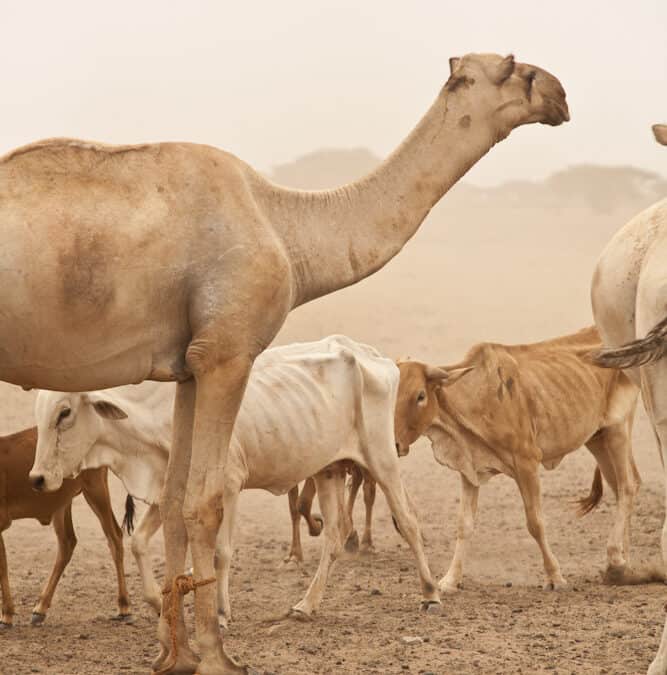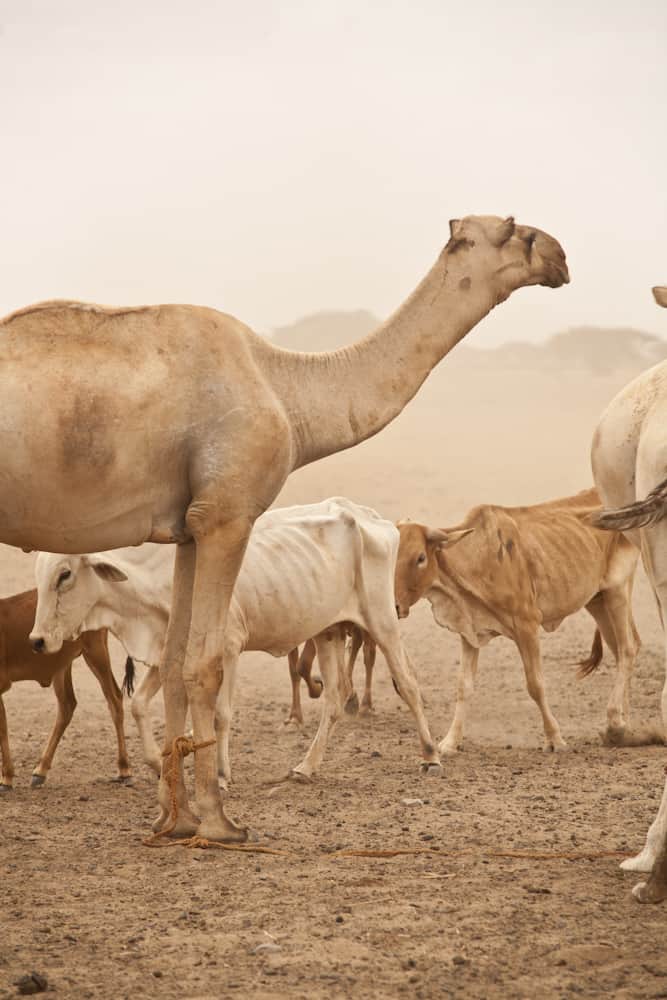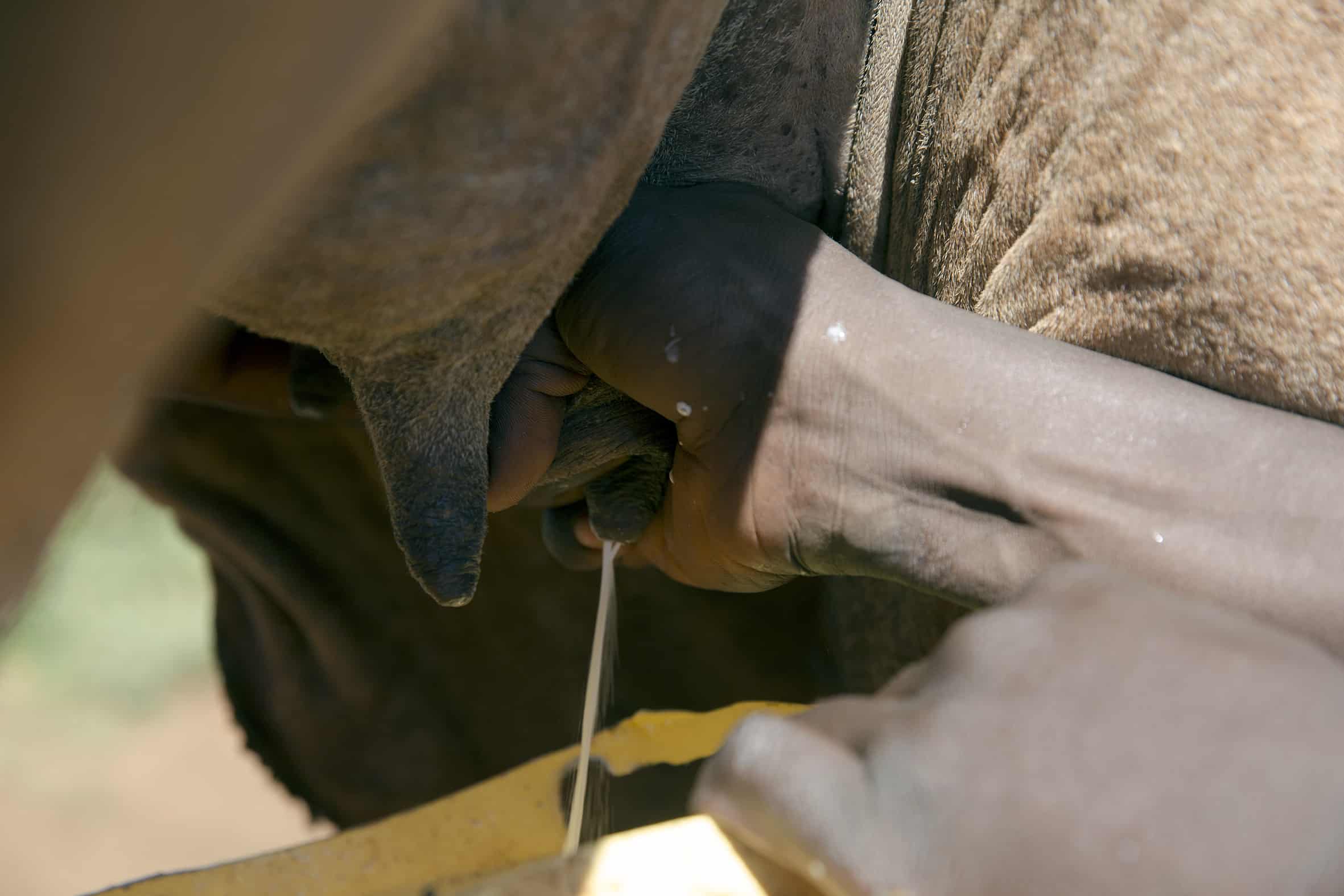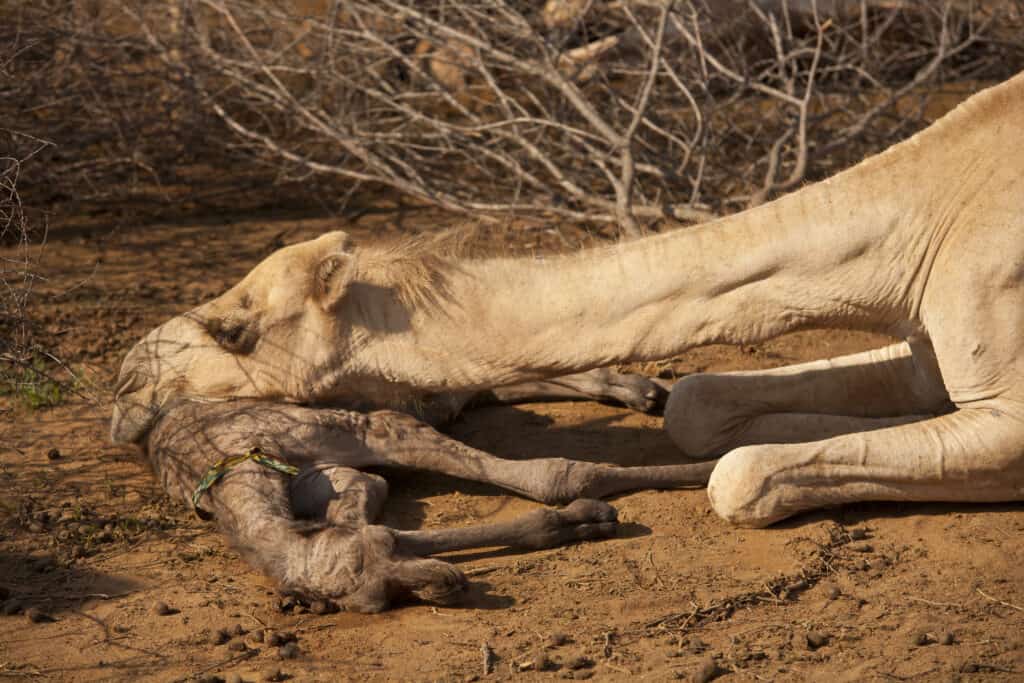
A camel and its calf take a rest during a quiet moment. © Tom Martin (martinundmartin.eu)
During droughts, food and water are scarce, animals become emaciated, give less milk, are more susceptible to disease and incur a higher mortality rate. As a result, thousands of cows, sheep and goats have fallen victim to droughts in Kenya in recent years.
The problem: without rain, no milk
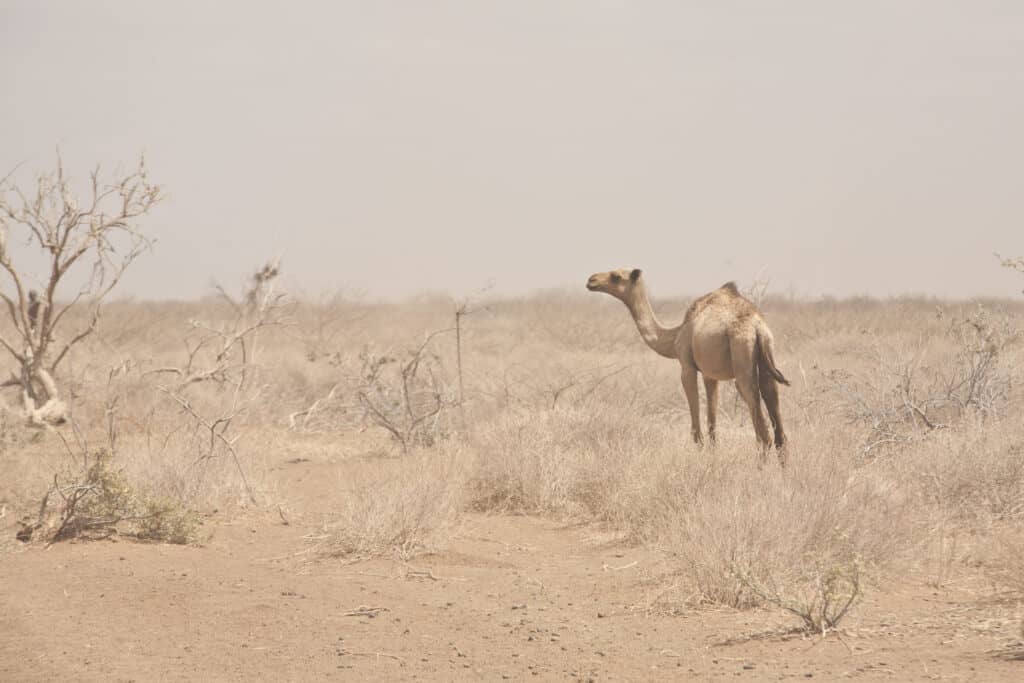
Camels are very resistant and give milk even during droughts. © Tom Martin (martinundmartin.eu)
But droughts also weaken endangered people like nomad families enormously. In their role as caretakers women are particularly vulnerable because their animals’ milk makes up a large part of their children’s diet.
If there is milk available because of the animals suffering under a drought, the risk and rate of malnutrition in children rises rapidly. This can have serious or even fatal consequences for the children affected.
Empowered women thanks to camels
If one wants to survive in such inhospitable conditions, one must be adaptable. Camels, for example, are used to living in arid regions.
- They are more resistant to drought than other animals because they do not depend on pasture land but eat leaves from trees such as acacias.
- They also give milk for up to three weeks without drinking water. They are truly amazing animals!
Since women in their role as caretakers are particularly affected by droughts, VSF-Suisse distributes camels to women’s groups. With the additional milk they get from their camels they can then improve the nutritional situation of their children and increase their family’s income.
But droughts also weaken endangered people like nomad families enormously. In their role as caretakers women are particularly vulnerable because their animals’ milk makes up a large part of their children’s diet.
If there is milk available because of the animals suffering under a drought, the risk and rate of malnutrition in children rises rapidly. This can have serious or even fatal consequences for the children affected.
Portrait: The Wabera Women’s Group
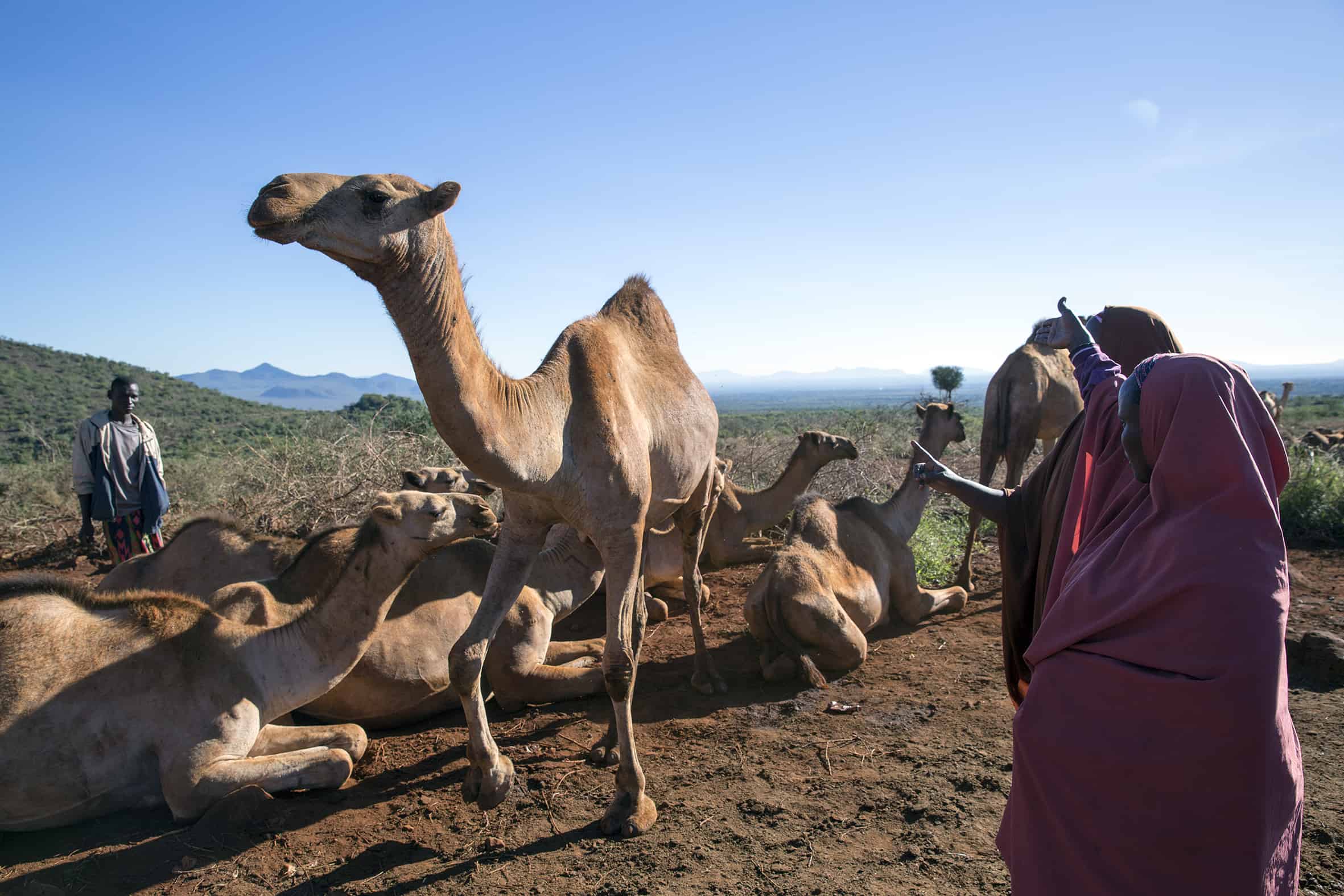
One of the groups we support is the Wabera Women’s Group. The women of this group do not only benefit from our project economically but are also connected to women from other groups. Somali and Meru women for example, have lived in neighbouring communities for a long time, but because there was no regular exchange between the two, they could not benefit from each other’s knowledge or experience.
This was to change when we started our camel project which
brought the two together.
eru women did not have any knowledge about camel husbandry, but with the help of VSF-Suisse, their new Somali colleagues introduced them to the art of camel breeding and milk production. . The group of 18 people received 18 camels, of which 9 had offspring and 15 were already pregnant again. What a blessing!
images: (1) ©Peter-Lüthi-Biovision (2) (3) ©Tom Martin (4) © Peter-Lüthi-Biovision
The project not only brings camel milk to the women, but also creates the opportunity for sustainable expansion of the herds. This has brought success and prestige to the Wabera Women’s Group! The Wabera Group is now better prepared for the next drought.
Thanks to the introduction and improvements in camel husbandry, Somali and Meru women can adapt sustainably to the strong climatic changes in Kenya.
Would you like to know more about the project? You can find the project description on our website ahttp://vsf-suisse.org/vsf/web/de/index.asp?QString=270,0,181,0,0,0&View=Detail
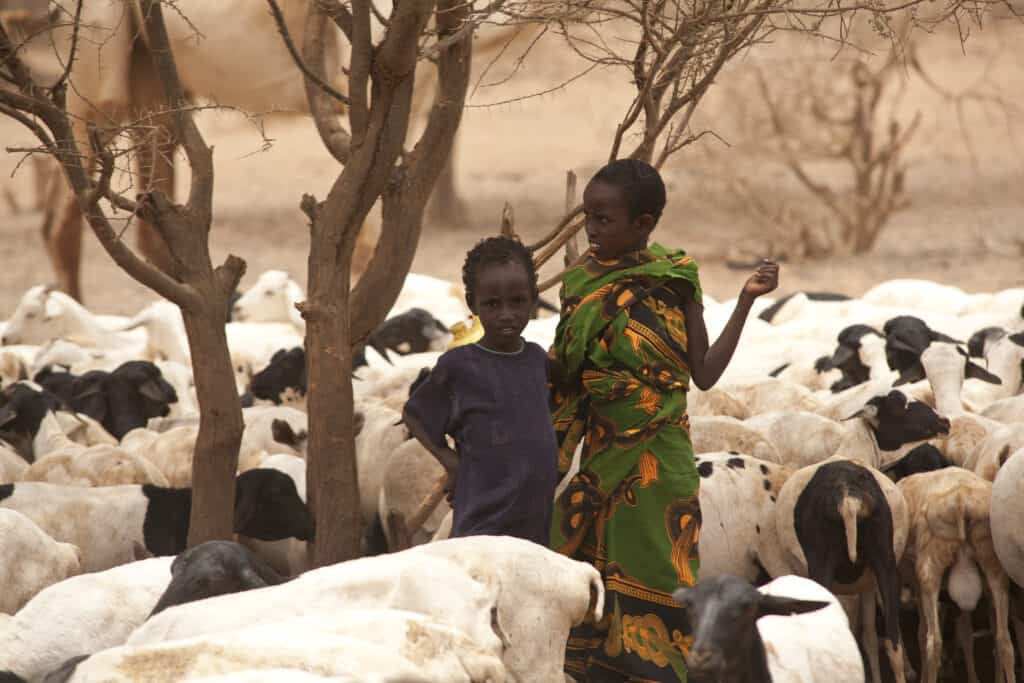
Two children with thier sheep in Kenya.
© Tom Martin (martinundmartin.eu)

